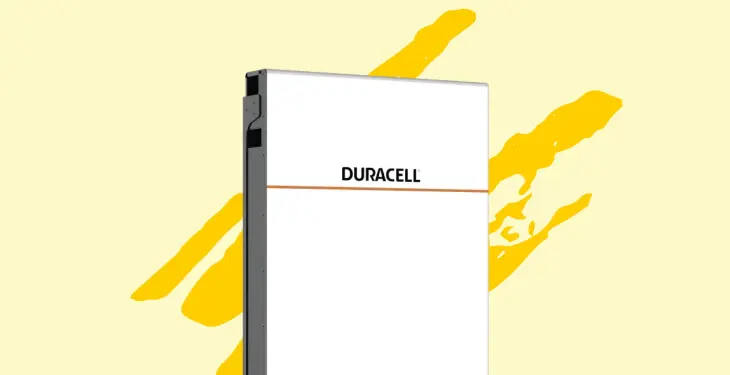

Written by Bethany Armstrong
Renewables Manager
Updated: 6th January, 2026
These grants not only help residents save money on installation but also help lower energy bills and support the UK’s goal to work towards reducing carbon emissions.
See how much you could save with a solar & battery quote.
Thinking about getting solar panels but worried about the cost? In 2026, there are several solar panel grants and funding options in the UK that can make switching to clean energy much more affordable.
Homeowners, renters, and social housing tenants can all find help, from 0% VAT on solar installations to grants and schemes that reduce upfront expenses.
These grants not only help residents save money on installation but also help lower energy bills and support the UK’s goal to help reduce carbon emissions.
Programmes like the Smart Export Guarantee (SEG) pay you for extra power your panels produce, while funding from initiatives such as ECO4 and national schemes in Scotland and Wales open the door to more households using modern solar technology.
Since April 2022, the UK government has set the VAT rate for solar panels and batteries to 0%. This is called the 0% VAT relief and it helps reduce the cost of installing these energy-saving materials.
The 0% VAT applies to both solar panels and solar battery storage when installed in homes. This VAT reduction scheme includes other energy-saving improvements, such as insulation and heat pumps.
Who can get 0% VAT relief?
Homeowners and landlords who install solar panels, batteries, or other eligible products in residential properties
Installation must be by a VAT-registered business
The building must usually be used for residential purposes
The table below shows the types of energy-saving materials covered:
Energy-Saving Materials | 0% VAT Applied? |
Solar panels | Yes |
Solar batteries | Yes |
Heat pumps | Yes |
Insulation | Yes |
No need to apply separately for 0% VAT. The installer should take care of VAT reduction on your invoice.
Businesses installing solar for commercial buildings do not get the same 0% VAT relief. The standard 20% VAT still applies for commercial installations.
Key benefits of 0% VAT:
Lower upfront costs
Improved return on investment
Makes energy efficiency upgrades more affordable
This tax break runs until March 2027, allowing many to improve their homes’ energy efficiency at a reduced price.
The Smart Export Guarantee (SEG) helps households and businesses make extra income from solar energy export. SEG payments allow people to get paid by energy suppliers for sending unused solar electricity back to the grid.
To use the SEG, a home or business needs compatible solar panels and a smart meter that can measure how much electricity is sent back. Only approved SEG licensees, energy companies licensed for SEG, can make these payments.
How the SEG works:
Generate electricity with solar panels.
Use what is needed on-site.
Export any excess to the grid.
Get paid for the exported energy by an SEG licensee.
A quick example table:
Example SEG Tariffs | Payment Range* (per kWh) |
Supplier A | 4.0p |
Supplier B | 5.5p |
Supplier C | 6.0p |
*Actual rates may change and often depend on the supplier and the specific tariff.
Different energy suppliers offer different SEG payments, so it’s important to compare options. Some suppliers may pay more per unit of solar energy export, while others could have extra requirements.
The SEG only pays for exported energy, not for the electricity used on-site. People can still benefit from lower energy bills because they use their own solar power first.
To apply, homeowners usually need an MCS-certified solar system and a smart meter. Each SEG licensee will set up their own application process and provide payment details.
The Energy Company Obligation (ECO4) scheme is designed to support low-income households across the UK. By working with energy companies, ECO4 aims to improve energy efficiency in homes and reduce carbon emissions.
Under ECO4, eligible households may qualify for free solar panel installations. This can help lower electricity bills and make homes more environmentally friendly. The scheme prioritises those receiving certain state benefits or with a household income below £30,000.
Eligibility requirements for ECO4:
Low-income households (usually under £30,000 per year)
Receiving qualifying benefits (such as Universal Credit or Pension Credit)
Property must be suitable for solar panel installation
Sometimes accessed through Local Authority Flexible Eligibility
Many areas in England, such as Portsmouth, Southampton, and Brighton, also offer support through local authority schemes. These local routes increase access for more residents.
A simple application process is required. Most often, applicants contact an approved installer or their energy supplier to start the process.
Potential benefits of ECO4 solar panel grants:
Benefit | Description |
Free installation | No upfront cost for approved applicants |
Lower energy bills | Use of solar power reduces reliance on the grid |
Improved home energy efficiency | May boost property value and comfort |
ECO4 is set to run until March 2026. Interested households should check eligibility and act soon while funding is still available.
The Warm Homes Plan targets people in social housing and private renters. It helps those often left out of home energy upgrades. In 2026, the scheme provides funding for improvements like solar panels, insulation, and new heating systems.
Eligibility focuses on low-income households or homes with poor energy efficiency (low EPC ratings). Both social housing tenants and private renters can apply if their home qualifies.
Typical upgrades include:
Loft or wall insulation
Heat pumps
Draught-proofing
Double glazing
Solar panel installation
The process starts by checking eligibility through local authorities. Successful applicants may receive grants that cover much or even all of the cost.
Below is a summary of what the Warm Homes Plan can support:
Upgrade Type | Available Grant? | Notes |
Insulation | Yes | All standard types |
Heat Pumps | Yes | For suitable properties |
Solar Panels | Yes | Subject to property survey |
Draught-proofing | Yes | Included in many upgrades |
Double Glazing | Yes | Replaces single glazing |
The government’s aim with this plan is to cut fuel poverty and lower energy bills. Upgrades make homes warmer and healthier for residents who need the help most.
Social landlords and tenants are encouraged to contact their local council or housing association for guidance. The Home Upgrade Grant, part of this plan, supports these efforts across England.
Home Energy Scotland offers support for people in Scotland who want to install solar technology at home. This support includes both grants and interest-free loans for solar panels and other renewable systems. The scheme aims to help households reduce energy bills and lower their carbon footprint.
Funding can cover both solar PV panels and solar thermal panels. Solar PV creates electricity, while solar thermal is used mainly for hot water. Households can also combine solar grants with other energy improvements under the Home Energy Scotland Grant and Loan scheme.
Key features:
Grants available for eligible measures
Optional interest-free loans
Advice on finding trusted installers
Support for a wide range of renewable technologies
Grants and loans are available for homeowners who plan to live in their property. Private landlords may be eligible in some cases.
Applicants are required to use trusted installers approved by Home Energy Scotland. This helps ensure that systems are safe and properly fitted.
Home Energy Scotland provides free guidance on which solar options suit different homes. They can also explain how grants interact with other incentives, such as the Renewable Heat Incentive (RHI), if still available in 2026.
For more details or to apply, residents can contact Home Energy Scotland or visit their official website.
The Welsh Government runs the Warm Homes Nest scheme to help people lower energy bills and make their homes more energy efficient. This scheme is open to households across Wales who meet certain eligibility rules.
Nest offers free advice on saving energy, making homes warmer, and cutting carbon emissions. For those who qualify, there are also free energy improvements, including solar panels, insulation, and heating systems.
Eligibility for the scheme is usually based on:
Living in Wales
Having a low income
Receiving certain benefits
Living in a home that is hard to heat
Approved households can get solar panels installed at no cost. This means families can use more of their own electricity and cut down on what they need from the grid.
Here's a quick breakdown of what Nest can provide:
Feature | Details |
Energy advice | Free, impartial, available to all |
Solar panels | Free for eligible households |
Other improvements | Insulation, new boilers, heat pumps |
Aim | Lower bills, warmer homes, less carbon |
Residents can apply online or by phoning the Nest helpline. Most advice is quick and easy to access, and the scheme covers all of Wales.
Households in Scotland can apply for the Home Energy Scotland Grant and Loan Scheme, which offers up to £6,000 towards solar panel installation. This funding includes a grant of up to £1,250 and a loan option for the remaining amount.
Wales has access to both national and local authority grants for solar panel funding. Some councils participate in the Solar Together scheme, a group-buying programme that helps residents save money by purchasing solar panels in bulk.
Northern Ireland offers regional grants as well as support through schemes that focus on home energy improvements. Funding options may vary by council, and residents are encouraged to check local authority websites for the latest opportunities.
Across these regions, applicants often benefit from 0% VAT on solar panels until 2027, making installations more affordable. There are also programmes funded through the ECO4 scheme, which supports energy efficiency measures in lower-income and vulnerable households throughout the UK.
Region | Main Grant or Scheme | Funding Available | Extra Notes |
Scotland | Home Energy Scotland Grant | Up to £6,000 (grant+loan) | Includes £1,250 grant |
Wales | Local Authority Grants, Solar Together | Varies | Group-buying discounts possible |
Northern Ireland | Regional Grants | Varies | Check with local councils |
Residents should compare regional grants, national programmes like ECO4, and other funding options to find the best support for their solar panel installation plans.
The upfront cost of solar panels varies, but grants and incentives in 2026 can lower the price significantly. Most UK homes will spend between £4,000 and £7,000 for a standard solar panel system before any financial help.
With grants like ECO4 and schemes offering 0% VAT, upfront costs may drop by up to 20-30%, depending on the grant and location. For example, a typical £6,000 system might cost £4,500–£5,000 after applying available grants and tax relief.
Here is a simple table showing estimated costs:
System Size | Usual Price | With Grants (Approx.) |
3 kW (small) | £4,000 | £3,000–£3,200 |
4 kW (average) | £5,000 | £3,700–£4,000 |
6 kW (large) | £7,000 | £5,000–£5,700 |
Not all homes will qualify for every grant. Some support is only for certain income levels or property types. It is important to check eligibility before making plans.
Extra cost savings may be available from the Smart Export Guarantee (SEG), where homes can earn money back by exporting unused electricity to the grid. This can help further offset the cost of installation over time.
The Smart Export Guarantee (SEG) lets homeowners earn money by selling unused electricity back to the grid. When solar panels produce more energy than needed, this extra power is sent to the energy provider. A smart meter tracks how much electricity is exported.
SEG payments are made by energy providers. Rates vary between companies, so comparing offers is important. Most schemes pay a set price for each kilowatt-hour (kWh) exported.
A typical household could save up to £230 a year just by exporting unused electricity through SEG. This is in addition to savings from using solar power instead of buying electricity from the grid.
Solar Benefit | Possible Annual Savings |
Using solar at home | £514 |
Selling to grid (SEG) | £230 |
Total | £744 |
A smart meter is required to join SEG. This device records exported electricity automatically, making the process easy and accurate.
The amount saved can depend on electricity costs, how much energy is used at home, and the SEG rate. Households that use less power during the day may export more, leading to higher SEG earnings.
Feed-in Tariff vs SEG:
The SEG replaced the old Feed-in Tariff scheme. Unlike the Feed-in Tariff, SEG only pays for electricity exported, not total generation.
Long-term savings from the SEG can help reduce electricity bills and improve return on investment for solar panels. Over several years, these savings add up and make solar much more affordable.
Last updated: 6th January, 2026

Written by Bethany Armstrong
Renewables Manager at iHeat
Bethany Armstrong is a renewables expert and operations manager at iHeat, specialising in heat pump solutions and solar project delivery across the UK.
LinkedInArticles by Bethany Armstrong are reviewed by iHeat’s technical team to ensure accuracy and reliability.

20th February, 2026
Yes, you can install home battery storage without solar panels in the UK. A battery-only s...
 Read Article
Read Article

19th February, 2026
Your Distribution Network Operator is the regional company that owns and manages the elect...
 Read Article
Read Article

06th January, 2026
These grants not only help residents save money on installation but also help lower energy...
 Read Article
Read Article
No obligation. Takes less than 60 seconds.